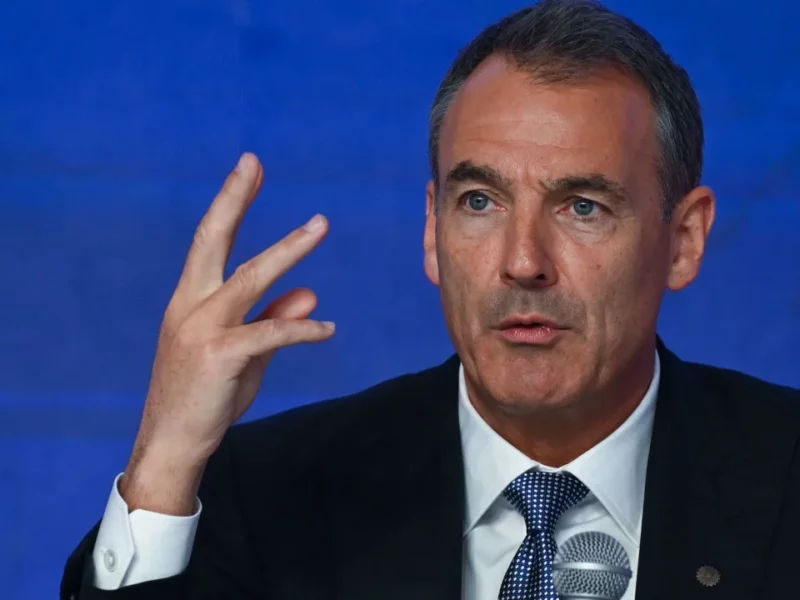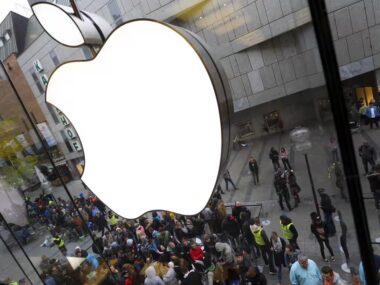BP’s CEO, Bernard Looney, has resigned after acknowledging that he was not entirely forthcoming about his “historical relationships with colleagues,” as per an announcement by the oil giant on Tuesday.
Murray Auchincloss, the company’s CFO, will take on the role of CEO temporarily.
“In May 2022, the Board received and assessed allegations, with the assistance of external legal counsel, regarding Mr. Looney’s behavior in relation to personal relationships with company colleagues. This information came from an anonymous source,” the statement explained. During this assessment, Looney revealed “a few past relationships with colleagues before becoming CEO,” but no violation of the company’s code of conduct was discovered.
BP stated that they recently received additional similar allegations and initiated an ongoing investigation.
“Mr. Looney has informed the Company today that he now acknowledges that he was not completely transparent in his previous disclosures,” the statement added. “He did not provide details of all relationships and recognizes that he had an obligation to provide more comprehensive disclosure.”
Looney, 53, served as BP’s CEO for just under four years but began his career at the London-based oil and gas company in 1991 at the age of 21. He spent his entire career with BP and was appointed as chief executive officer in July 2020, overseeing the company’s transition into an integrated energy company with a strong emphasis on emissions reduction.
The stock’s shares concluded Tuesday’s trading session with a 1.3% decrease.
A shift towards environmental sustainability and renewable energy.
Looney entered his role with ambitious plans to achieve net-zero emissions by 2050 and allocate significant funds to renewable energy.
“Involving companies with the highest carbon emissions is crucial for achieving climate objectives,” Looney co-wrote in a 2021 CNN op-ed with Christiana Figueres, the former executive secretary of the United Nations Framework Convention on Climate Change. “They must participate in the transition to lower or zero-carbon solutions to have any chance of fulfilling the Paris Agreement’s commitment. More and more companies are eager to contribute, and global expectations for their involvement are high.”
During his tenure, BP became the sole major oil company to set targets for reducing oil and gas production in this decade. However, this decision didn’t sit well with shareholders, leading to BP’s stock trailing behind competitors like Shell, Chevron, and Exxon Mobil.
More recently, Looney reversed some of these goals and increased investment in crude oil and natural gas.
In the last quarter, BP fell short of profit expectations. Nevertheless, the company raised its dividend by 10% and revealed intentions to repurchase an additional $1.5 billion worth of shares. As a result, the stock has seen an increase of approximately 12.6% in value since the beginning of this year.
Transitioning from the dairy industry to the oil sector.
Bernard Looney’s upbringing took place on a small dairy farm near Kenmare, Ireland. He held the distinction of being the first person in his family to pursue a college education, as both of his parents left school at the age of 11.
Describing his family’s farming life, Looney mentioned, “We had 14 cows, and it was pretty much subsistence farming.” He even shared an interesting detail about his present-day interests, saying he enjoys following tractor-related accounts on Instagram.
Looney’s educational journey led him to study electrical engineering in Dublin and earn a business degree from Stanford University.
His career at BP began as a drilling engineer, eventually advancing to overseeing the company’s North Sea operations. However, his tenure coincided with a pivotal and tragic event in BP’s history—the explosion of the Deepwater Horizon rig in the Gulf of Mexico. This incident resulted in a staggering $70 billion in penalties for BP and marked the largest oil spill in U.S. history.
Following the disaster, Looney spent 60 days working in Houston, tirelessly working to cap the well and contain the crude oil spill in the Gulf. Ultimately, according to the U.S. Environmental Protection Agency, approximately four million barrels of oil flowed out of the damaged well. Looney has described this period as the most challenging of his career.











